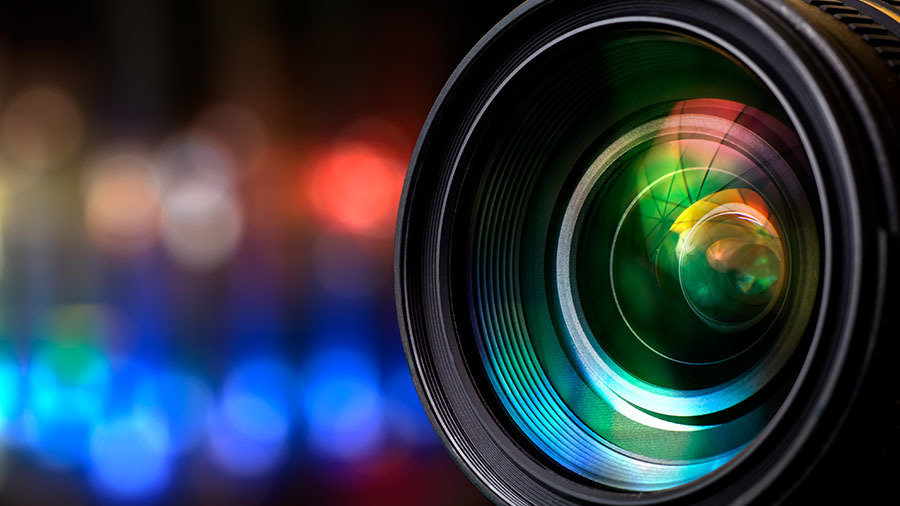
As well as powering new technologies, quantum physics can be the engine that drives narratives, inspires artists, or builds the foundations of imaginary worlds. Just think of popular movies such as Interstellar and films from the Marvel Cinematic Universe.
There’s even a series of contests dedicated to creative works inspired by quantum physics. The annual Quantum Shorts contests has since 2012 encouraged filmmakers and writers to explore this counterintuitive science with annual calls for quantum-inspired flash fiction or short film.
The competition has returned this October with a new call for films up to five minutes long. Filmmakers can find more information and rules at shorts.quantumlah.org – and film watchers can look out for details of screening events to come next year.

Quantum Shorts’ top prizes will be decided this year by an expert panel. The members include filmmakers Alex Winter, Jamie Lochhead and Mark Levinson, all of whom have directed shorts or documentaries on physics. Also on the panel are art-science curator Honor Harger, science communicator Lindy Orthia and quantum physicist José Ignacio Latorre.
“There is no roadmap to explore unknown territories. As quantum physicists, we have to abandon prejudice and comfort to peer into the heart of the quantum,” says Latorre, who is Director of the Centre for Quantum Technologies (CQT) at the National University of Singapore. “We invite filmmakers to do the same and share with us their journey.”
Despite having a reputation as being difficult to understand, quantum physics has contributed a host of ideas to popular culture. Building from its detailed mathematical descriptions of the behaviour of light and matter, it leads into philosophical deep waters. Take Schrodinger’s dead-and-alive cat, entanglement across space-time and the many worlds interpretation.
Also, quantum technologies are pushed into the public consciousness by news about the promise of powerful quantum computers, sensors that can measure the tiniest shifts in time and gravity, and the prospect of a quantum internet.
Authors and filmmakers bring these ideas to life in novel ways, drawing a wider audience into thinking about the quantum concepts. As the world anticipates a new quantum age, the perspectives of writers, filmmakers and artists can help us to understand the role of science in our culture and where new technologies might take us.
The stories and films entered each year are diverse and creative. In the fiction competition concluded earlier in 2020, the finalists included stories about meeting your other selves, a quantum-inspired interstellar pandemic, and a particle collider caring for its scientist. They were selected from a total of 647 entries received – an unprecedented number in the competition’s eight-year history.
Readers can still enjoy these stories on the Quantum Shorts website. They can also enjoy finalists from previous years in e-book form. The free Quantum Shorts e-book includes 37 short stories.
In the book’s foreword, quantum physicist Artur Ekert encourages creative exploration. “There is no contradiction between imagination and rational thinking,” he writes. “I think that without imagination and fantasy you will never live your life to the full; you will never expand your horizons, or come up with new ideas, inventions and discoveries.”
Quantum Shorts is organised by CQT as part of its programme of public engagement. Scientific American, the longest continuously published magazine in the U.S., and Nature, the international weekly journal of science, participate as media partners of the competition. Leading quantum research centres worldwide – the Dodd-Walls Centre, the ARC Centre of Excellence for Engineered Quantum Systems, the Institute for Quantum Computing, the Institute for Quantum Information and Matter, QuTech, and the UK National Quantum Technologies Programme – lend their support as scientific partners. Representatives of the scientific partners will contribute to selecting the shortlist of films to be screened next year.
Final plans for events will depend on the pandemic, but Quantum Shorts already has screening partners for this edition in the ArtScience Museum in Singapore and Otago Museum in Dunedin, New Zealand.
Quantum Shorts is poised to share filmmakers’ visions of a quantum reality. Filmmakers: note the deadline for entries is 1 December 2020.
Visit Quantum Shorts: shorts.quantumlah.org
Twitter: @quantumshorts
Facebook: @quantumshorts
For more market insights, check out our latest quantum computing news here.















